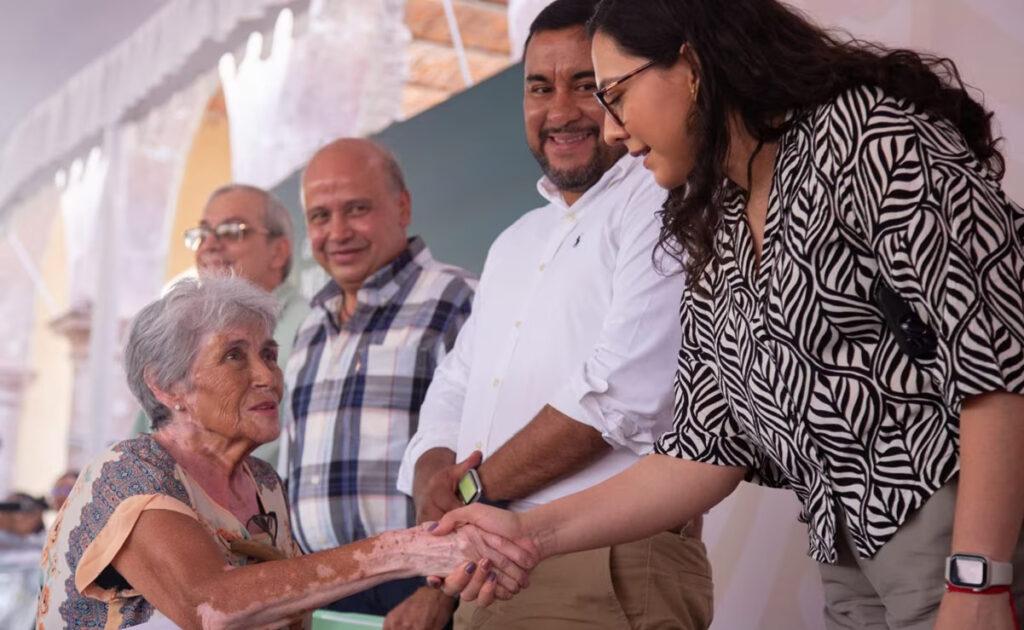Temacapulín, Palmarejo and Acasico celebrate bittersweet milestone in public ceremony.
As we have reported in previous coverage of Temacapulín, or Temaca — The Town that Refuses to Drown — after 15 years of struggle, the townspeople finally won their fight against the construction of the El Zapotillo megadam that would have flooded the tiny colonial jewel of a village and two other towns. The dam would be finished but at a lower height, one that would not flood the villages.
Last week, in a historic moment marked by the town, representatives of the federal and state governments came to the village to deliver an official apology to the townspeople. Esperanza Project collaborator Mario Marlo of Somos el Medio covered the event. What we learned was that while the people of Temaca, Acasico and Palmarejo were of course gratified by the official apology, it really didn’t go very far in easing the hurt.
Especially since, as they revealed at the event, the thermal waters that made the town famous as a tourism destination had ceased to flow, apparently disrupted by the excavation of the crews finishing the work on the dam.
Lee este artículo en español aquí: Gobierno mexicano ofrece disculpa a comunidades afectadas por la Presa El Zapotillo
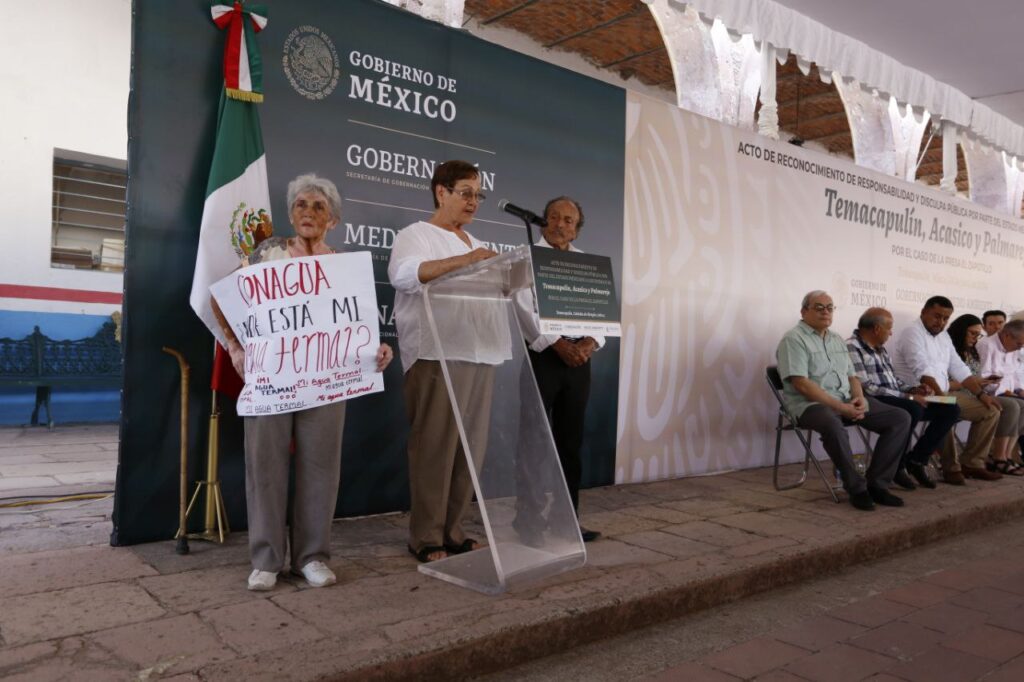
Temacapulín, Jalisco — In an act of historical recognition and reparation, the Government of Mexico offered a public apology to the people of Temacapulín, Acasico and Palmarejo for the violations of their human rights suffered due to the El Zapotillo Dam hydraulic project.
In front of inhabitants of the three communities, the Undersecretary of Human Rights, Population and Migration of the Ministry of the Interior, Arturo Medina Padilla, recognized the responsibility of the Mexican State and offered a public apology to the communities of Temacapulín, Acasico and Palmarejo for the damages caused by the El Zapotillo dam project.
“The Mexican State violated the right to decent and adequate housing, the right to participate in the formulation of infrastructure plans or projects, the right to property, the right to demonstrate, the right to information, the right to have effective judicial remedies, the right to social peace, the right to water and the right to freedom of association,” he stated.
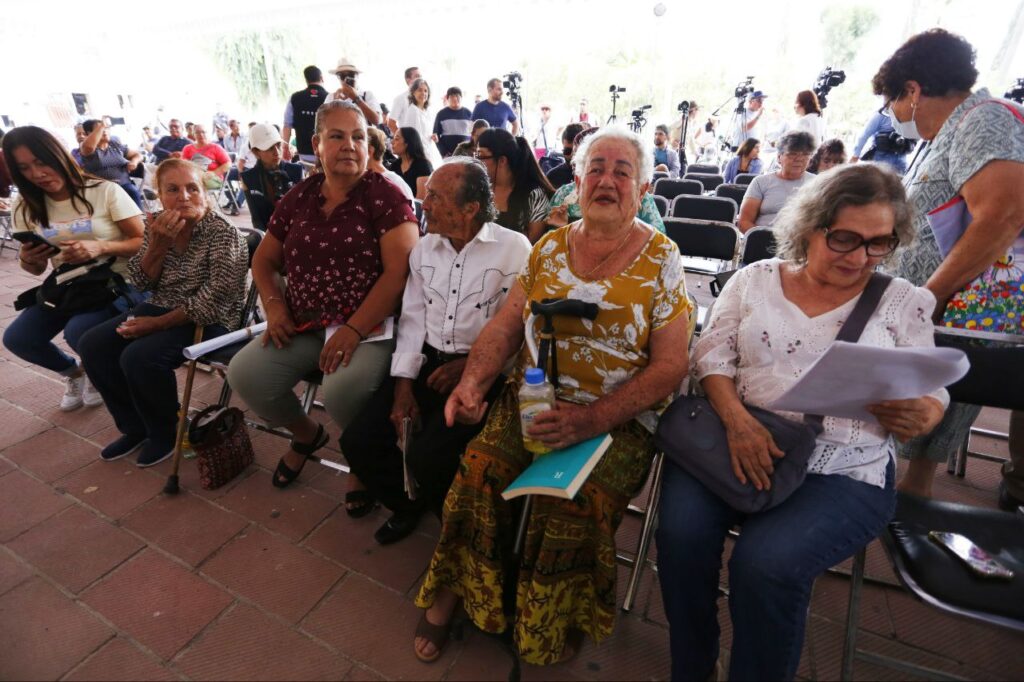
The undersecretary recalled the years of uncertainty and struggle of the communities since the dam project was promoted in 2005, which implied the flooding of these populations.
“Today we remember the years of uncertainty that Temacapulín, Palmarejo and Acasico experienced since 2005. The El Zapotillo dam threatened to erase centuries of history, culture and community life,” Medina said.
The undersecretary emphasized the fundamental role of social organizations and citizens in the fight against arbitrariness and abuse of power. “Their commitment has been fundamental to advance the fight against arbitrariness and abuse of power,” he said. “We recognize their role in building a society that guarantees respect for human rights.”
“On behalf of the Mexican state, I offer you apology for making the management of natural resources an unfair, exclusive and authoritarian process. I also apologize for the suffering and anxiety we caused you and your families,” he concluded.
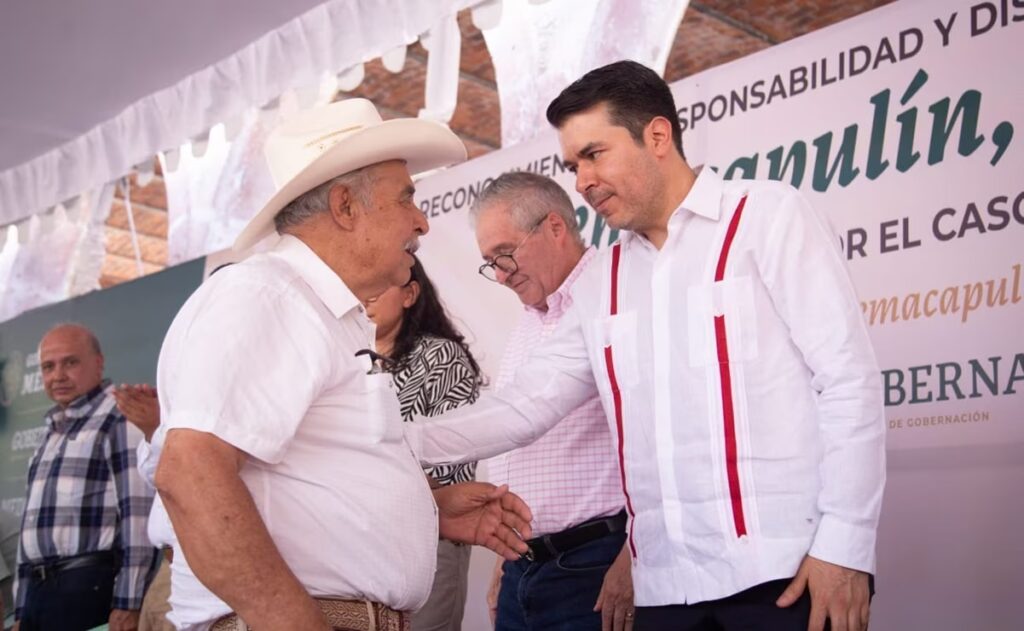
The event was also attended by the Secretary General of the Government of the State of Jalisco, Juan Enrique Ibarra Pedroza, who was booed when he spoke on behalf of Governor Enrique Alfaro Rodríguez.
In his speech, he stressed the importance of this act for truth, justice and memory, and expressed a public apology to the affected communities.
“The public recognition of responsibility and the offering of apology are crucial elements for the dignity of people and to criticize the violations of human rights that they suffered,” declared Ibarra Pedroza.
For her part, Claudia Cecilia Gómez Godoy, in charge of the El Zapotillo dam project and the Justice Plan, began her speech by expressing her gratitude for the presence of men, women, youth and children from the communities, as well as human rights organizations, journalists, academics and representatives of civil society. “This moment would not have been possible without the participation of all of you,” she said.
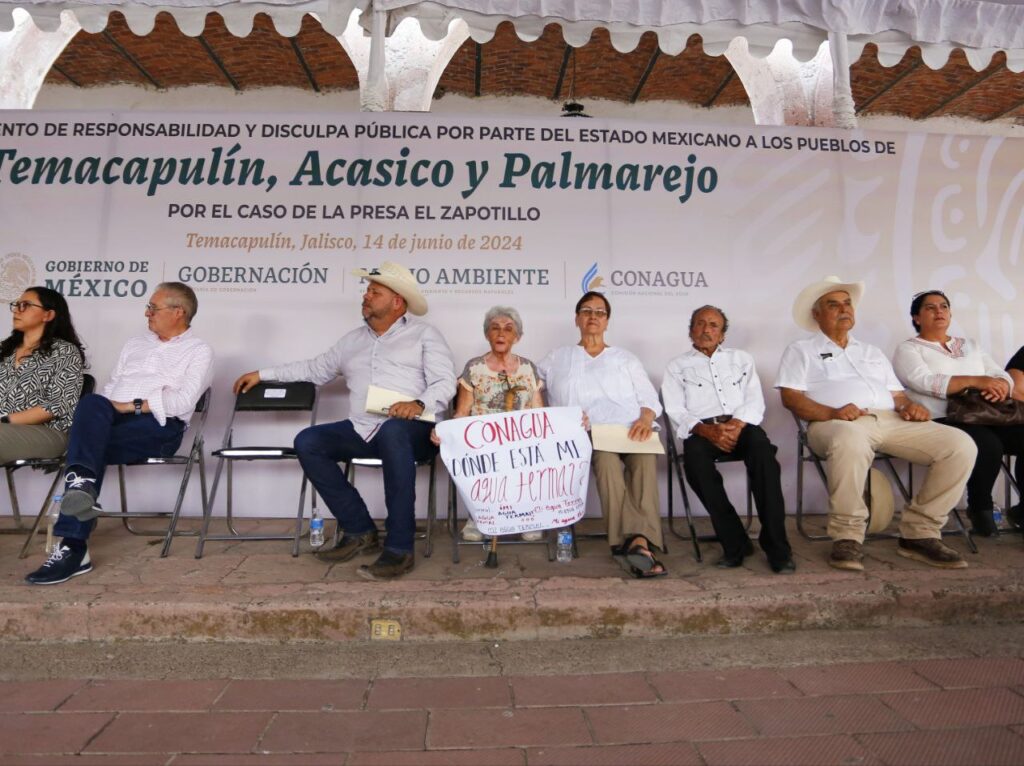
The event was described as a “historic day” for the communities. “The government of Mexico came to recognize that it was wrong,” said Gómez Godoy, emphasizing that this recognition is a tribute to the tireless struggle of the people. She highlighted that this date will be inscribed in the history not only of Temacapulín, Acasico and Palmarejo, but also of all the communities that resist in the defense of their territories.
María de Jesús García, known as Marichuy, a resident of Temacapulín, recognized for the defense of her community, made a strong call to the authorities to correct the excavation that caused the hot springs, one of the community’s assets, to disappear.
“We are also asking them to repair the thermal water,” she said. “There are 21 hot springs, and the companions who are working removed them. This town lived on tourism, today we don’t have thermal water, that’s what I want to tell you. If they f***ed it up, they clean it up.”
Finally, Marichuy thanked all the people who accompanied them during the fight and ended with the phrase, “There’s no going back, not even to catch a flight.”
